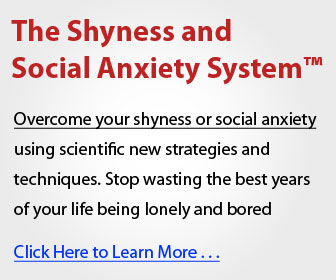Have you ever found yourself frustrated when people don’t behave the way you expect them to? Maybe your partner didn’t text you back quickly, your coworker didn’t follow your idea, or your friend canceled plans at the last minute. It’s human nature to want control. But what if the key to a happier, more peaceful life is to simply let them?
The Let Them Theory, made popular by Mel Robbins, is a simple yet profound mindset shift: stop trying to control others, and instead allow them to be who they are. This approach not only reduces stress but also strengthens relationships and improves mental health. In this article, we’ll dive into real-life examples of how the Let Them Theory can transform your relationships, your work life, and even your inner peace.
What Is The Let Them Theory?
At its core, the Let Them Theory is about acceptance and emotional detachment from outcomes you can’t control. Instead of trying to change people’s behavior, you embrace the idea that they are free to make their own choices. By doing this, you free yourself from unnecessary stress and resentment.
It doesn’t mean you allow disrespect or toxic behavior. It means you stop fighting battles that aren’t yours to fight. This mindset is life-changing because it shifts the focus from controlling others to controlling your response.
Real-Life Example #1: In Relationships
Imagine this: Your partner loves watching sports on weekends, but you’d rather go out for a hike. Instead of nagging, sulking, or arguing, you say, “Okay, let them watch the game.” You go on that hike with a friend or enjoy some solo time.
What happens?
- They feel respected and not controlled.
- You maintain your happiness without forcing a compromise.
- The relationship avoids unnecessary conflict.
The Let Them Theory teaches you that love isn’t about control—it’s about freedom and trust. When you let people be themselves, they often become more appreciative of you because they don’t feel pressured.
Real-Life Example #2: In Friendships
Your friend cancels plans again. Normally, you’d feel hurt and think, “They don’t value me.” But with the Let Them mindset, you say, “Let them cancel.”
You use that time for self-care, reading, or doing something productive. Later, when you see them, there’s no tension because you didn’t create a story about their actions.
The benefit?
- No drama.
- Healthier friendships.
- More emotional energy for things that matter.
Real-Life Example #3: At Work
Picture this: You share a great idea in a meeting, but your boss doesn’t use it. Instead of obsessing over why, you think, “Let them run the project their way.”
What happens next?
- You avoid unnecessary stress.
- You stay professional and positive, which boosts your reputation.
- You save energy for the tasks you can control.
The result? Peace of mind and better performance because you’re not stuck in resentment mode.
Real-Life Example #4: With Family
Family expectations can be tough. Maybe your parents want you to pursue a certain career or attend every family event. Instead of arguing, you think, “Let them want what they want.” You choose what’s best for you without guilt.
This shift creates freedom on both sides. They can hold their opinions, and you can live your life authentically.
Why The Let Them Theory Works
This mindset works because it removes resistance. The more you fight to control someone else’s choices, the more frustrated you become. When you let go, you:
- Lower stress and anxiety.
- Improve relationships by removing unnecessary pressure.
- Gain more time and mental energy for things you can control.
How to Practice the Let Them Theory Daily
- Pause before reacting – When someone does something you don’t like, take a deep breath and remind yourself: “Let them.”
- Focus on your lane – What can you control? Your attitude, your response, your choices.
- Shift your perspective – Ask, “Is this worth my peace?” Most of the time, it’s not.
- Set boundaries, not control – You can say no or walk away without forcing others to change.
Final Thoughts
The Let Them Theory sounds simple, but living it requires awareness and practice. It’s not about being passive—it’s about being free. When you let go of control and allow people to be who they are, you create space for authentic relationships and inner peace.
If you’ve been feeling drained by trying to manage everyone around you, start today. The next time someone does something that annoys you, just say: “Let them.” Watch how much lighter your life becomes.



